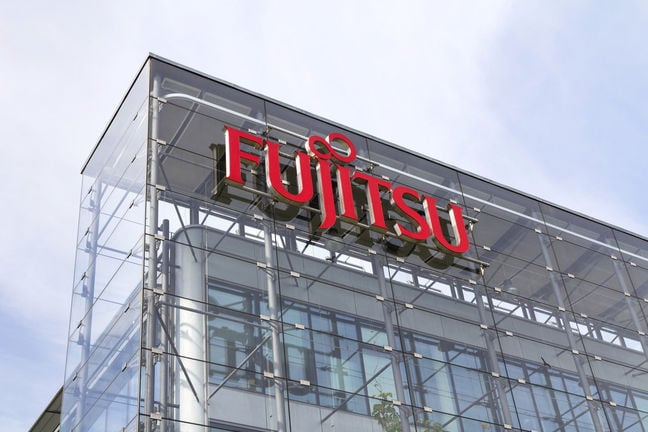Fujitsu Pulls The Plug On European Client PC Sales

Fujitsu has confirmed to The Register that it will cease selling all personal computers in Europe beginning in spring next year.
The decision comes amid shrinking sales for the sector following the pandemic boom.
Only in Europe
A Fujitsu spokesperson told us that its commercial strategy is to become a "DX company to support our customers' digital transformation. The goal is also to build a business model that will make sustainability transformation the core business.
"With this in focus and after careful consideration, Fujitsu intends to exit the Client Computing Devices (CCD) business in Europe. All existing support contracts around the CCD portfolio will be fulfilled and CCD products will be shipped until April 2024. Timelines and implementation are subject to employee consultation and local regulations."
This means no more sales of the LifeBook laptops and tablets or the Esprimo PCs within the next eight or so months.
"All Client Computing Devices will continue to be shipped until April 2024 and all exiting support contracts around CCD will be fulfilled. This decision is related to Europe only," the Fujitsu statement added.
As such, the business in Europe will focus on "driving its existing server and storage business as well as the product related services."
The move follows a March announcement by the company that the successor to its Arm-based A64FX processor will be a more general-purpose datacenter chip.
The CPU, code-named "MONAKA," is slated for release in 2027, and Fujitsu claims it will provide "overwhelming energy efficiency" while contributing to "the realization of a carbon-neutral and sustainable society."
It's also supposed to boost performance for HPC, AI and data analytics workloads, with information seen by The Register indicating the new chip should provide 1.7x lead in application performance and offer 2x the performance per watt.
While the move to shutter its European PC biz will likely be felt deeply by LifeBook fans, it probably won't come as a huge surprise.
Fujitsu had already said it would end hardware production at its Augsburg, Germany plant by 2020. And last year, the Japanese firm said it would stop selling mainframes and Unix server systems by 2030.
- Fujitsu's A64FX successor will be an Arm-based datacenter chip
- Japan rebukes Fujitsu for cloud security fails
- Should leaders place bets on new PCs or generative AI?
- Opportunity NUCs for Asus to continue Intel's mini PC line
Plus, now that the pandemic boost to PC sales has ended, it's not the most lucrative time for brands peddling personal computers. According to Gartner, shipments declined 14.6 percent in EMEA during calendar Q2 of 2023, the sixth consecutive quarter of declines.
"Continued political unrest, inflationary pressures and interest rate increases continue to impact demand for PCs," said Gartner.
Data from Canalys indicates that the top five PC makers – Lenovo, HP, Dell, Apple and Acer – accounted for 78.5 percent of total sales in Q2. It pays to have huge economies of scale in that industry.
Canalys research analyst Kieren Jessop told The Register: "Fujitsu's exit from Europe is not entirely surprising. Their market share, particular for desktops, has consistently declined for several years. Their exit won't have a considerable impact on Europe's PC market. Nonetheless, it is a big hit to Fujitsu. Europe was their largest market outside of Asia Pacific, making up 25 percent of their total PC shipments in 2022."
Figures shared by the analyst with The Reg showed that with just under 173,000 units shipped in Q3 2019, Fujitsu once had 4.49 percent of the European desktop market. The most recent figures from Canalys, for Q1 2023, showed 73,821 desktop units shipped – just 2.88 percent of the declining Euro desktop market. Total PCs Fujitsu shipped per quarter in the same period nearly halved from 254,483 in Q3 2019, to 135,598 in the first quarter of '23.
The Register asked what happens to the Fujitsu teams that were selling and marketing PCs in Europe. The company spokesperson told us: "This is subject to consultation with relevant employee representative bodies." ®
From Chip War To Cloud War: The Next Frontier In Global Tech Competition
The global chip war, characterized by intense competition among nations and corporations for supremacy in semiconductor ... Read more
The High Stakes Of Tech Regulation: Security Risks And Market Dynamics
The influence of tech giants in the global economy continues to grow, raising crucial questions about how to balance sec... Read more
The Tyranny Of Instagram Interiors: Why It's Time To Break Free From Algorithm-Driven Aesthetics
Instagram has become a dominant force in shaping interior design trends, offering a seemingly endless stream of inspirat... Read more
The Data Crunch In AI: Strategies For Sustainability
Exploring solutions to the imminent exhaustion of internet data for AI training.As the artificial intelligence (AI) indu... Read more
Google Abandons Four-Year Effort To Remove Cookies From Chrome Browser
After four years of dedicated effort, Google has decided to abandon its plan to remove third-party cookies from its Chro... Read more
LinkedIn Embraces AI And Gamification To Drive User Engagement And Revenue
In an effort to tackle slowing revenue growth and enhance user engagement, LinkedIn is turning to artificial intelligenc... Read more

